
Nikki works as a stripper at the Penthouse Club in Tampa, Florida, and on that September night, the club was filled with football fans celebrating the Tampa Bay Buccaneers' victory against the Dallas Cowboys, despite the fact that the state was experiencing its biggest COVID outbreak to yet.
When Nikki worked, she always took sure to clean the pole well before each performance and kept her hands sterilized at all times, but there was nothing she could do to avoid unwanted client contact. Working in the service business during a pandemic is terrifying enough, but strippers need to be intimate, whether feigned or not.
"This is our 9-to-5," Marley, another Penthouse stripper, explained. "It's not that I don't think it's safe or comfortable for people to be in range." This is how we support ourselves."

Tampa is known for its strip joints, with locals bragging that it is the "strip club capital of the world" (however, the claim has been proven to be false). Despite the fact that all strip clubs and other non-essential facilities closed for a three-month shut down in March 2020, the strip club industry has benefited from the state's lenient COVID restrictions since then. (To protect strippers' identity, HuffPost utilized stage names throughout this post.)
Florida Governor Ron DeSantis (R) issued an executive order in May 2021 that nullified all current municipal COVID regulations. He's even credited the lack of limitations as a key factor in the tourism industry's resurgence.
In October, the state's tourism organization stated, "While other states were closed, VISIT FLORIDA invited people from all over the world to enjoy the enchantment and freedom of a Florida vacation."
However, that liberty may have come at a price. Florida eventually emerged from its deadliest COVID wave to date in late October, having recorded more infections, hospitalizations, and fatalities over the summer than at any other time since the epidemic began. During the statewide increase caused by the delta variety, it reached 25,000 average daily cases and 445 average daily deaths in August, giving the state the highest death rate in the country. In total, more than 50,000 individuals in Florida have perished as a result of the illness.


Despite these alarming figures, DeSantis issued an executive order in July prohibiting schools from requiring students to wear masks and threatened to punish towns and counties that imposed vaccine mandates. Though the state's inadequate vaccination rates, at 58.2 percent, have been blamed for the deadly surge, DeSantis said in a press conference in September that people's decision to get vaccinated "doesn't impact me or anyone else," though the state's inadequate vaccination rates, at 58.2 percent, have been blamed for the deadly surge, along with the contagious delta variant.
As strip clubs in other states remained closed, dancers rushed to Florida to keep working.
"We had a number of entertainers migrate to Florida temporarily because it was the only way they could keep making money," said Caroline Kirkendoll, head of Penthouse Global Licensing, which licenses the Penthouse name to strip clubs all over the world. "There was practically an overabundance of workers."
Johanna, a penthouse dancer, had just arrived from New Orleans a few days before I chatted with her. She was used to wearing masks in New Orleans and found it "a little strange" not to do so inside the club. "I have mine," she explained, "but I saw no one was wearing it."
"I always felt like I'd be criticized for believing COVID was a real thing," Stephanie, another dancer, explained why she didn't use masks.
"It felt like wearing a mask would make me less money," she explained.
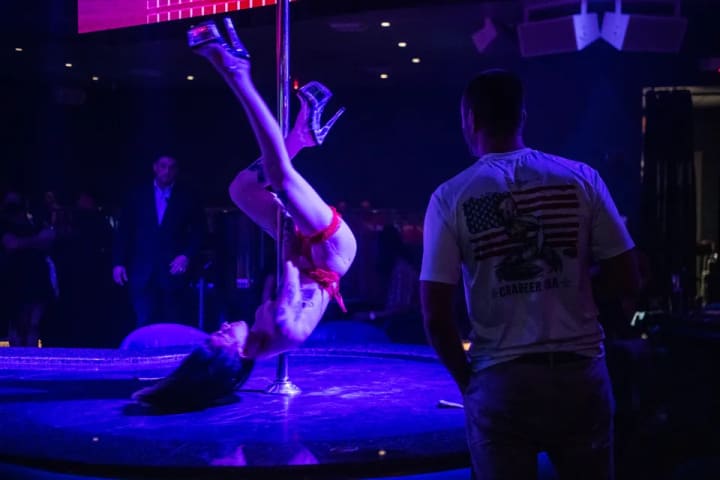



Strippers who might have wanted to wear masks felt compelled to go maskless as long as the vast majority of clientele and colleagues were not.
Mons Venus, the city's most prominent strip club, was created about 40 years ago by Joe Redner, dubbed "Tampa's Strip Club King" and the self-proclaimed "Father of the Nude Lap Dance." As a business owner, he felt he had no control. He feels that unless the government imposes mask laws or vaccine mandates, his clientele and dancers will flee to other strip clubs if either is made required. He stated, "It has to be a level playing field."
Redner, who is now in his 80s, has fought the city council's attempts to regulate the strip club industry, gone to the Florida Supreme Court to argue his case about cultivating his own marijuana and run for mayor. However, he admitted that there is one thing he isn't proud of: not dismissing any of his employees who refuse to get vaccinated.
He informed me, "I don't feel comfortable in my own club." "I'm not sure why it doesn't bother anyone here." "Don't they know what's going on in the world?"

Dancers in strip clubs are self-employed individuals who work for tips. While the dancers at Mons Venus are free to come and go as they choose, some clubs, such as Penthouse, charge strippers a "house fee" to perform. The penthouse has attempted to entice dancers to get vaccinated by promising to waive home fees for two weeks, according to Kirkendoll.
However, the majority of the dancers I spoke with did not believe vaccination was necessary. Some people believed they didn't need it because they were young and healthy.
Luna, a Penthouse stripper, explained, "I don't get the flu shot, so I won't get the COVID shot." "I juice and head to the gym the second I become sick."
Others believed the vaccination had not been adequately tested for safety. "I'm not doing anything until we have real proof on it," Marley, a Penthouse dancer, stated. "It's not that I want to hurt anyone, but if anyone feels threatened or has underlying issues, you probably shouldn't be here."

Despite the state's lack of regulations and the strip club industry's typically laissez-faire attitude, a few strippers stood out for insisting on doing everything they could to protect themselves. Bella, the Mons Venus stripper, is a cancer survivor. She wore not only a mask but also goggles at the start of the pandemic. She still wears a mask when performing now that she's been vaccinated.
"It can be awkward at times," she admitted. "People make fun of me for wearing a mask, especially the younger kids who think it's a joke and say things like, 'I'm not going to throw money at you because you're wearing that mask,'" she says. But, with two young children at home and a 98-year-old grandma to consider, she believes it is worth foregoing a small amount of money: "Is it just for the money?" "You can't purchase happiness with money."
Nyx, a stripper at another Tampa nightclub, Déjà Vu, also wears a mask and is properly vaccinated. Even when guests request it, she never removes her mask. She attempts to turn the other way when they get in her face. She also makes them clean their hands before taking them back to a secluded booth for a lap dance. "You have to balance the dangers and rewards of anything," she explained. "In terms of my livelihood, this is critical."
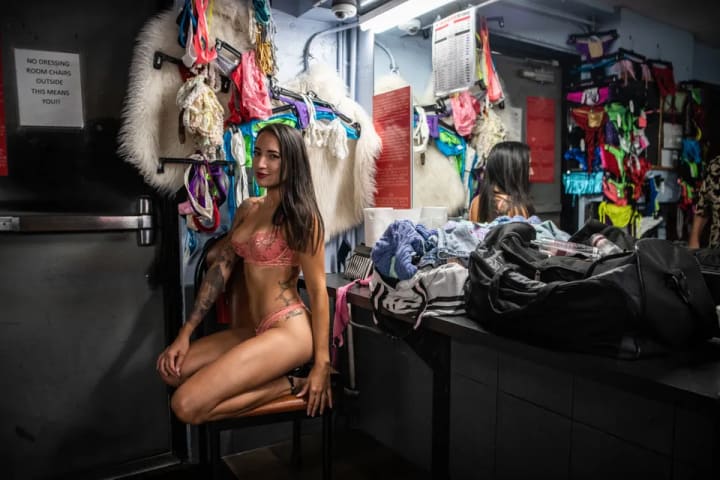
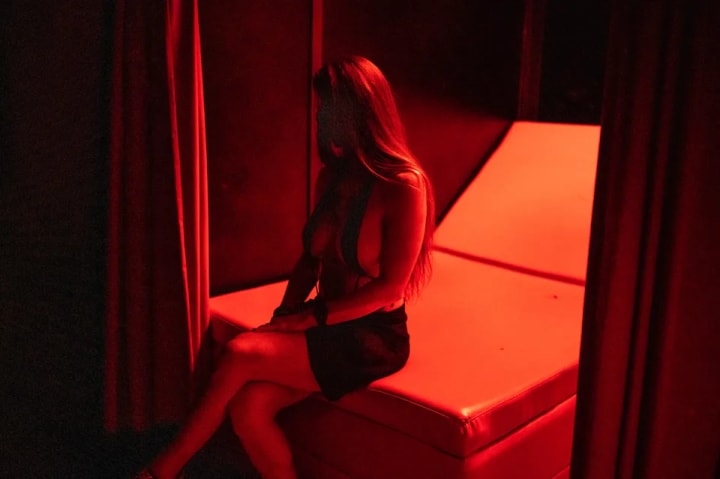
Love, another Déjà Vu dancer, had stopped dancing and gone to work as a webcam operator until she was vaccinated. She's now back on stage, choosing Déjà Vu because the large venue appeared to be better ventilated than others. "It's still terrifying," she admitted. "I'm going to fetch the booster," says the narrator.
The general manager of Déjà Vu, Marcos Figueroa, claimed he's doing everything he can to keep the club safe for everyone. "We don't want to have a poor rap," he explained, "because of the business we're in." The club even produces its own alcohol spray, dubbed "Cooty Killer." "We want to demonstrate that we are genuinely concerned about everyone."
Despite the dangers of the pandemic, customers appeared eager to return to the city's strip joints. According to Figueroa, the club is making at least as much money as it was before the nationwide shut down in March 2020: "They don't have else to go, novices, and they know we put on a good show."
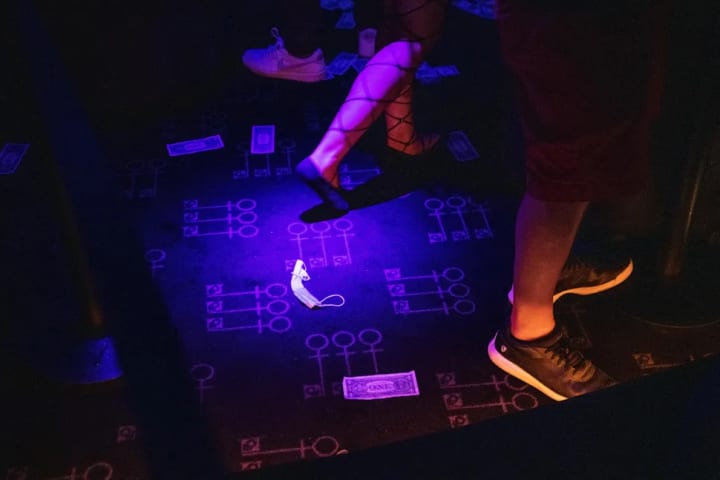
Art & Photo Director: Christy Havranek Art Director: Isabella Carapella Sr. Photo Editors: Damon Dahlen, Chris McGonigal
About the Creator
Rashel
Rashel is an investigative journalist for Time, The Atlantic and other magazines.


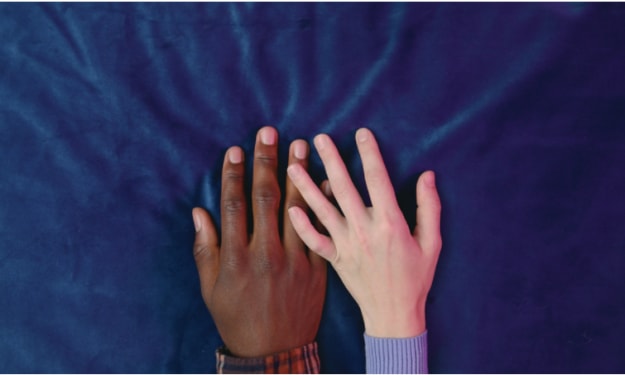



Comments
There are no comments for this story
Be the first to respond and start the conversation.